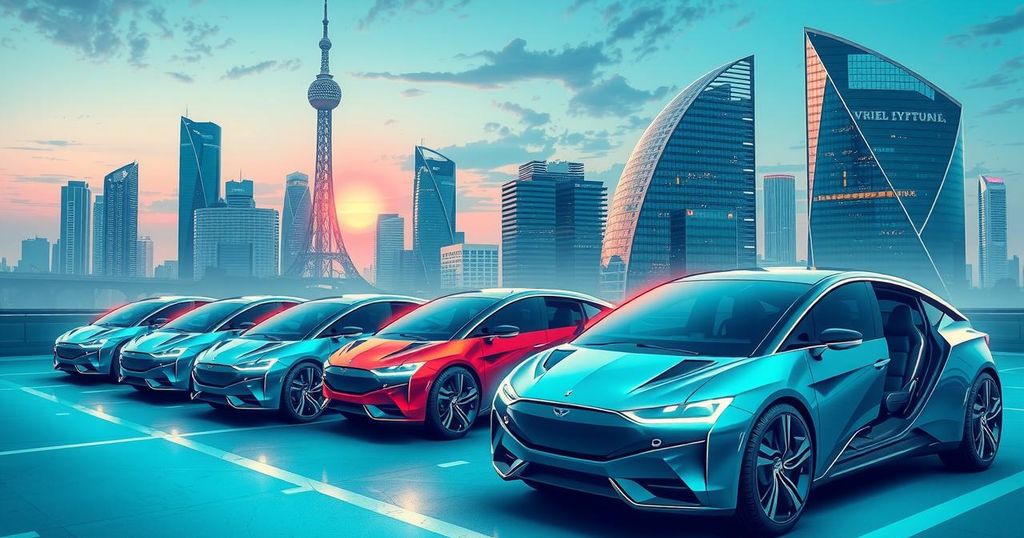Global EV Giants Pause Plans in India Amid Trade Negotiations

Global EV manufacturers are delaying engagement with India’s new EV policy to pursue potentially better terms through bilateral or free trade agreements. The EV policy allows reduced import duties but mandates significant local investment. Meanwhile, domestic automakers are concerned about the implications of easier import norms for foreign companies.
Global electric vehicle (EV) manufacturers such as Tesla, Volkswagen, BMW, Mercedes-Benz, and Renault are postponing their engagement with India’s new EV policy. Instead, they are waiting for more beneficial terms via ongoing bilateral trade agreements (BTA) or free trade agreements (FTAs). This conservative strategy aims to secure better conditions before investing in local EV manufacturing.
The Indian scheme for promoting electric passenger car manufacturing (SPMEPCI) allows for the import of up to 40,000 EVs at a reduced customs duty of 15%, compared to the current 70-100%. To qualify, companies must invest a minimum of $500 million in local manufacturing and adhere to localisation mandates within three years, including a 25% localisation requirement.
Industry insiders report that discussions with original equipment manufacturers (OEMs) have significantly slowed. Companies are now focused on getting similar or improved concessions through ongoing FTAs and BTAs with the U.S. and EU. A senior executive from a European automaker noted that a favorable trade deal would be better compared to investing in India’s premium car market, which may not yield significant returns.
The attractiveness of BTAs is rooted in their potential to provide market access without the stringent commitments imposed by the EV policy. As a result, the ongoing trade negotiations offer a more appealing alternative for foreign automakers seeking to enter the Indian market.
Meanwhile, Tesla is proceeding with its India entry plans regardless of policy outcomes. The company has rented space for a showroom in Mumbai’s Bandra Kurla Complex and is negotiating for another location in Delhi’s Aerocity. It is planned that Tesla will begin imports from its Berlin factory while awaiting final trade agreements.
Domestic automakers like Tata Motors and Mahindra & Mahindra are raising concerns about the implications of relaxed import policies for foreign OEMs. They worry that such changes could undermine their investments in the domestic EV sector. A senior executive expressed worries that favorable duty cuts for foreign brands could damage local market prospects and hinder India’s goal of being a global EV manufacturing powerhouse.
Experts are cautioning the government to be judicious. They advocate that if trade concessions are pursued, any duty reductions should focus on internal combustion engine vehicles rather than on EVs, to help protect the nascent EV segment in India.
The current landscape of EV trade negotiations in India indicates a strategic pause by global manufacturers seeking better terms through trade agreements. With the requirement of local investments and localisation features in India’s EV policy, many companies are opting to wait for BTAs and FTAs that might offer more lenient conditions. Meanwhile, domestic manufacturers are expressing concerns regarding the impact of foreign competition on their investments. As trade discussions progress, careful consideration is essential to balance international interests with local industry protection.
Original Source: www.financialexpress.com





